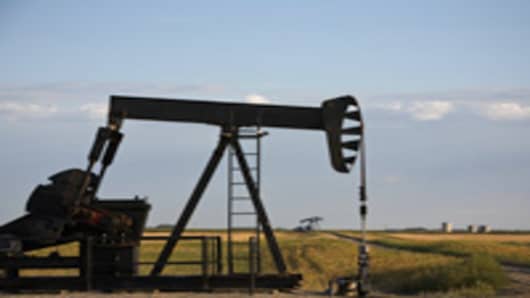The unemployment rate in Williston, North Dakota hovers around .07 percent. Wal-Mart is offering $17 an hour, and even the United States Postal Service is hiring.
The ridiculous factoids of a boomtown never cease to amaze when looking through the lens of a slow-growth national economy.
Williston is the poster city for the oil boom in the region referred to as the Bakken , the name of the rock formation that could ultimately yield billions of barrels of oil.
Even two years after this region became a national news story, there is still a wild west feeling to this part of North Dakota. New construction is everywhere. People literally getting off the train with just the shirt on their back, looking for a job. There is a lot of money, and a lot of testosterone.
The only difference between now and 200 years ago is that people here now know what's going on in the rest of the country.
And although this presidential election is not a referendum on energy policy per se, there is an undercurrent of concern.
"I think people in this part of the state are very nervous, " Williston Mayor Ward Koeser told CNBC. "There isn't a lot of confidence in President Obama when it comes to understanding the oil industry.
"I'm not saying that Romney would be the perfect choice either, but I think there is more support for him simply because of his experience in business, energy development things like that."
(Read More: Could a Romney Win Hurt Investors in Green Energy? )
Ironically, the incredible prosperity in North Dakota — the state has at least a $1.5 billion SURPLUS — has happened during the Obama administration. However, the fear is that things might change in the next four years, especially when it comes to fracking, the controversial process that extracts oil and natural gas from certain rock and shale formations.


